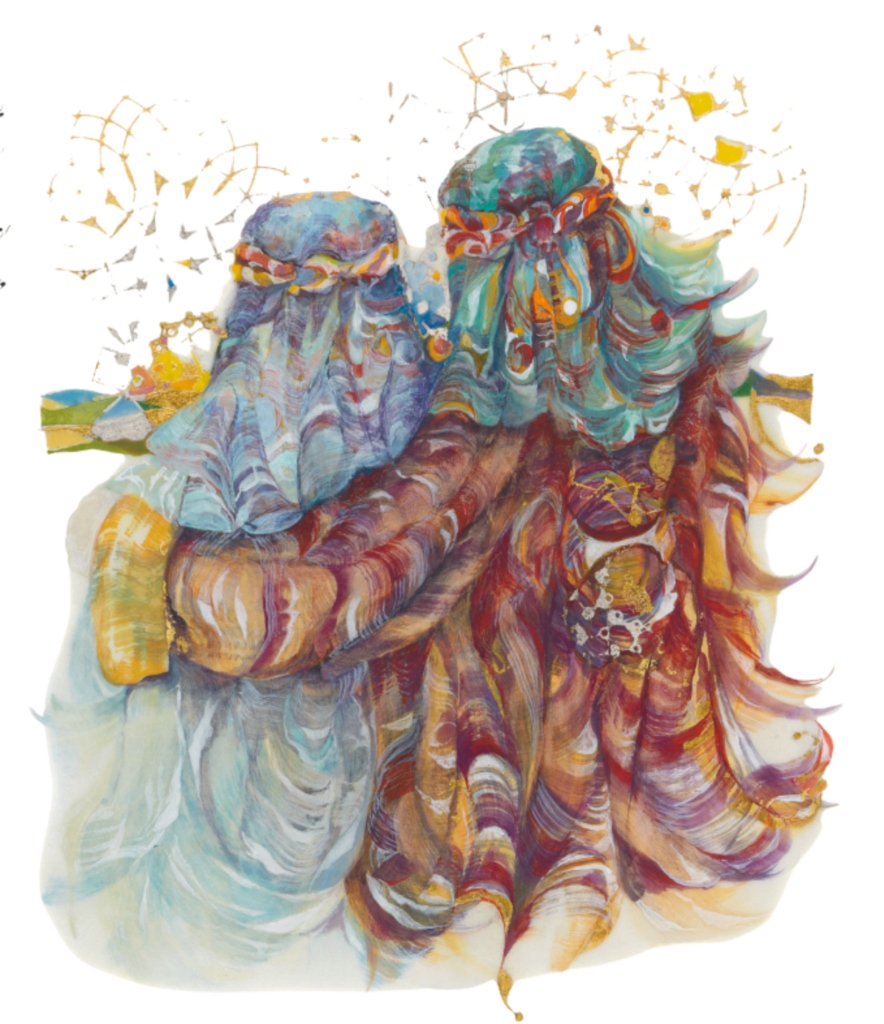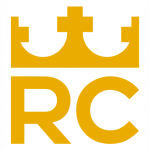21 Sep A Church that Listens (RFQ 4.1)

Ruth and Naomi, Suzanne Moore, Copyright 2010, The Saint John’s Bible, Saint John’s University, Collegeville, Minnesota USA. Used by permission. All rights reserved.
Canada’s first Indigenous canon lawyer knows what obstacles lie in the path of Indigenous people becoming recognized, stable leaders and ministers in the Catholic church. These barriers fall squarely in Noah MacDonald’s area of expertise.
“There’s lots of things in canon law and the structure of the church that require specific amounts of education, things that have unfortunately been a barrier,” MacDonald told Regis Friends Quarterly. “(It’s hard) for Indigenous folks in the church to actually have a lot of those gifts they have recognized and honoured by the church.”
As he pursues his PhD in theological studies at Regis St. Michael’s Faculty of Theology, MacDonald is beginning to sketch out just how the system can be creatively re-engineered to welcome Indigenous leaders into ministry in their church.
With a $50,000 grant from the Lilly Endowment, one of the world’s largest foundations that supports religious, educational and charitable research, MacDonald is synodally consulting with Indigenous Catholics across Northern Ontario and Quebec, asking them how they see themselves contributing to the growth, survival and success of their churches.
“We’ve been engaging in listening circles in places in and around Manitoulin Island, then we’re heading up to Thunder Bay and then Kahnawake,” MacDonald said. “We’re getting a well-rounded idea, meeting folks after mass to hear what they would like in a program that would best suit their needs.”
This consulting phase is a stepping stone toward something more ambitious. MacDonald is using this research to write a grant application for about $1 million in support of a research-focused program to welcome Indigenous Catholics into leadership in their church. Building on the listening circles, MacDonald has engaged Dr. Kiera Brant-Birioukov, principal consultant and co-founder of Ridge Road Training and Consulting, for her expertise in helping institutions recognize valid and valuable Indigenous learning and helping Indigenous people, whose educational paths may not have followed conventional paths, to achieve Bachelors of Education, Masters of Social Work and other qualifications.
MacDonald knows well that in the Canadian Church, the recognized standard for ordained or stable ministry has been a Master of Divinity. Pre-requisite for most MDiv programs is an undergraduate degree. The course of studies is heavily focused on Western philosophy, scientific models of social work and education, Western legal history and concepts, plus ancient and modern languages from the Near East and Europe.
An ability to speak Cree or Anishinaabemowin, acquired through online classes or summer language camps, doesn’t count for much on the admission forms.
“This is to help remove those barriers, or at least have that same amount of education accessible,” said MacDonald.

Noah MacDonald
Openings to Indigenous learners have been advanced recently by Regis College and Pope Francis.
Following on from the 2018 Synod on the Amazon, in 2021 Pope Francis issued a couple of documents motu propriu that mandated conferences of bishops to create standards for recognition of lectors, acolytes and catechists – not as occasional volunteers but as ministers in the church. Later that year the Holy See even published a model liturgy (editio typica) for a rite of institution of catechists. The Canadian Conference of Catholic Bishops has not yet issued its educational requirements for these ministries, but MacDonald believes they will.
The CCCB has been studying the “liturgical, pastoral and canonical elements” of the changes mandated by Pope Francis, the conference’s director of communications Maribel Mayorga told RFQ in an email. Once this study is complete, it will be up to the bishops to actually institute programs and liturgies that would welcome acolytes, lectors and catechists to recognized, stable ministries, Mayorga said.
“Because of the complexity of these considerations we do not know when the guidelines will be completed,” she said. At the same time, Regis College has launched certificate programs in conjunction with the University of Toronto – the Certificate in Theological Studies and the Certificate in Theology and Interreligious Engagement. Admission to these five-course programs typically requires an undergraduate degree.
Such certificate programs could be one way to prepare Indigenous Catholics to minister in their church.
Reaching back into Jesuit and Canadian church history, MacDonald sees another building block for a system that honours and recognizes Indigenous learners in the church – the Diocesan Order of Service in the Diocese of Sault Ste. Marie. Beginning in the 1970s, the Jesuits at the Anishinabe Centre near Espanola, Ont. trained men for service in the diaconate and women for nearly identical service in their communities. Today, with the tools of modern distance education, MacDonald imagines that this history could become the future at Regis.
The acolytes, catechists and lectors of the future will come out of this kind of training, MacDonald said. “How cool would it be if it was Indigenous women who were the first in Canada to actually receive these designations (catechist, lector, acolyte)?” he asked.
So far, the Diocesan Order of Service – instituted by Bishop Alexander Carter shortly after his return to the Soo from the Second Vatican Council – is not part of the CCCB’s vision for the new ministries, Mayorga told RFQ.
“Although the CCCB is aware of the Diocesan Order of Service in the Diocese of Sault Ste. Marie, the Conference is focusing on Spiritus Domini and Antiquum Ministerium as well as the liturgical texts for the institution of these ministries,” she said.


